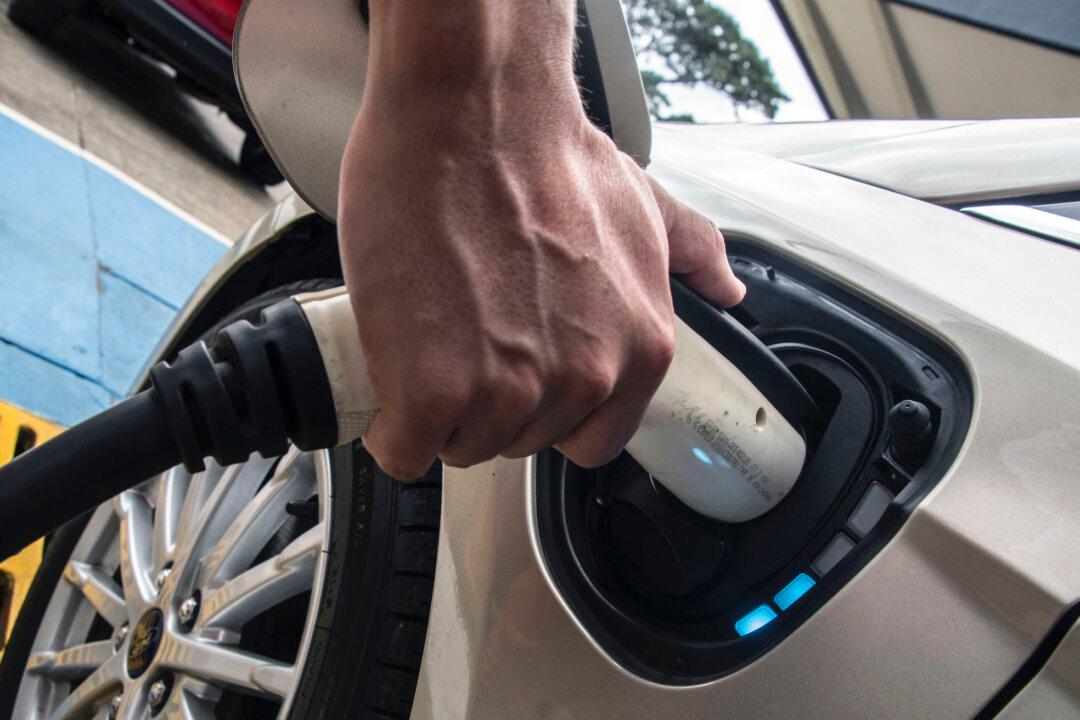IRVINE, Calif.—Sales of electric cars surged to a record level in the fourth quarter of 2021, defying industry-wide inventory constraints and overall slow sales of new cars, according to a report released on Jan. 28 by Irvine-based Kelley Blue Book.
According to the report, almost 148,000 electric vehicles sales occurred in 2021’s fourth quarter, a 72 percent jump over the fourth quarter of the previous year. The strong finish to the year gave electric vehicles an overall market share of 4.5 percent for the quarter, also a record.





